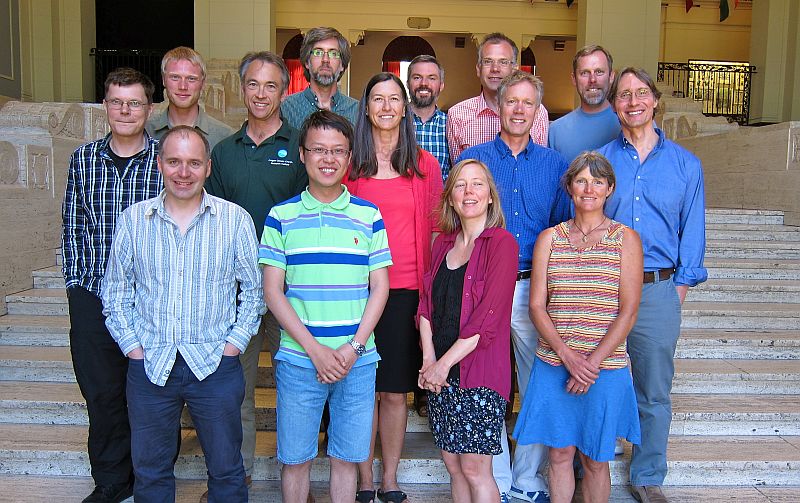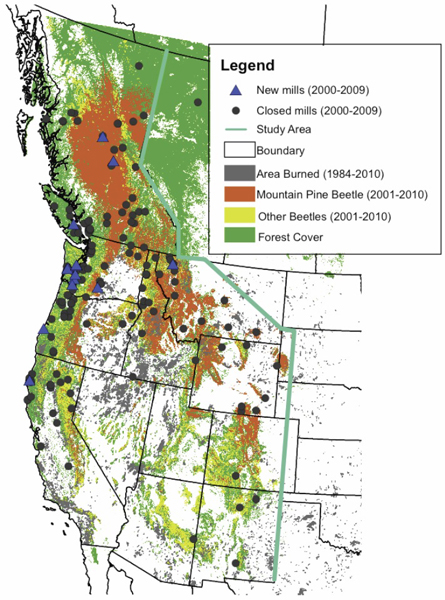- Improve CLM to predict tree mortality
- Map vulnerability of forests to mortality under present and future climate and greenhouse conditions.Couple CLM to economic models. Apply the coupled models to predict ecological and economic outcomes. Identify policies and management strategies that optimize the sustainability of ecosystem services and forest function
- Assess and reduce uncertainty in our forecasts. Develop new tools for evaluating uncertainty in climate impact predictions
Our primary goal is to understand the interactions and the feedbacks by which human decisions and forest ecosystems influence each other. We are using the Community Land Model (CLM) to predict tree mortality due to droughts, fires, and insect attacks. We also focus our efforts on the coupling between CLM and economic models to elucidate the interactions and feedbacks among climate, tree mortality, and economic factors. To our knowledge, this work represents the first effort to couple state-of-the-art earth system models and economic models in which each provides feedback to the other year by year. These advances should help to understand the relationship between land-use decisions and climate-induced vulnerability of forests to mortality.
Currently, we are working on:
- Predictions of the integrated vulnerability of forests to mortality from multiple causes (including beetle attacks) in western North America.
- Evaluation of the ability of thinning scenarios to reduce tree mortality at a regional scale.
- Evaluation of the impacts of future mortality on timber production, on carbon sequestration, and on the exchanges of carbon, water, and energy between a region and the atmosphere.
An important goal of the proposed research is to identify policies and management strategies that can preserve forest function. The linked set of models will provide an invaluable policy analysis tool as it projects the impacts of adaptive management, climate change, and disturbances on forest ecosystems and economic sustainability. The project will emphasize cross-model policy impacts; e.g., the ecological impacts of economic policies and the economic impacts of ecological policies. The team plans to evaluate the impact of federal forest adaptive management strategies, the impact of severe forest mortality on public and private forests, and the impact of market-based incentives designed to alter private forest management. The chosen scenarios will reflect the interests of land managers, the objectives of agencies, and actual proposed policies (5-year project supported by NIFA, initiated May 1, 2013).
Link to model input data:
Link to traits database:
NACP TERRA-PNW: Forest Plant Traits, NPP, Biomass, and Soil Properties, 1999-2014


Attacks on Forests in the Study Region from Beetles and Fires
Tree mortatlity in the western U.S. (see publication by Berner, L.T. et al. in Environmental Research Letters 2017)

FMEC Meeting 2018